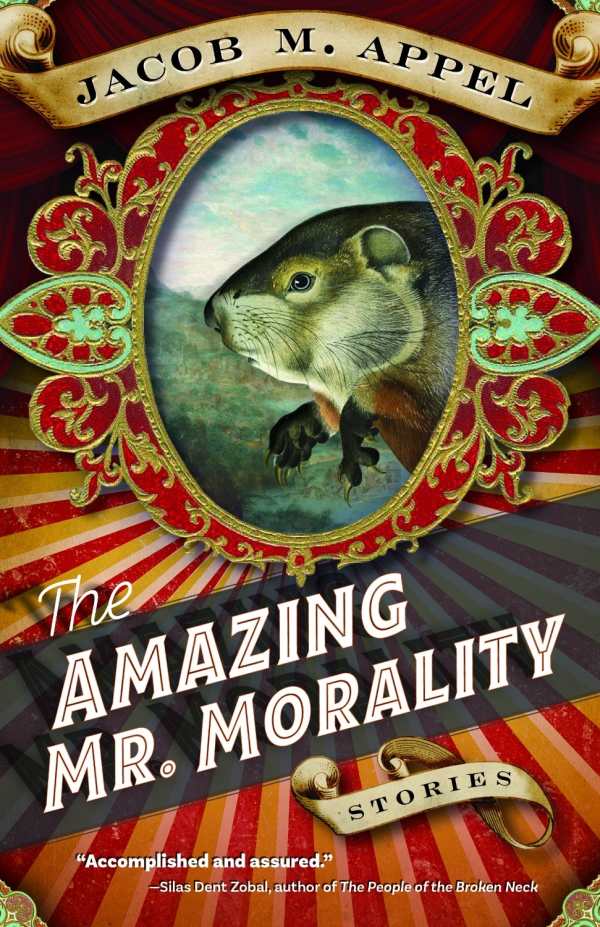The Amazing Mr. Morality
Writing is both no nonsense and successfully secretive when it comes to twists and turns.
Jacob M. Appel’s seventh short-story collection, The Amazing Mr. Morality, is filled with wit and intriguing characters. It explores the perils of modern middle-class life.
The first story, “The Children’s Lottery,” requires a trigger warning for child abuse and pedophilia. Those who can get past the disturbing nature of this otherwise thought-provoking dystopian tale will find the rest of the collection to be full of humor and surprises.
Most of the stories take a seemingly innocuous situation—the process of renaming a street, the extermination of a woodchuck in the backyard—and turn it into a complex psychological conundrum. This hyperbole adds to the humor of the stories while simultaneously suggesting a deeper meaning than the text may imply.
While each story has its own distinct theme, the collection seems to be about the lies we tell ourselves and others, and what our reactions to the implications of such lies say about our character. For instance, the main character in “Tracking Harold Lloyd” understands, after a few days of searching, that her new neighbor’s missing dog likely does not exist, but she continues looking, if only to be kind to the lonely old woman.
The premise of the title story—a novella-length piece—is representative of the collection’s purpose as a whole: two journalists write articles back and forth in an attempt to answer impossible ethical questions. With writing that is both no nonsense and successfully secretive when it comes to twists and turns, these stories delve into the moral concerns of twenty-first-century life.
All of the characters, be they hapless, ambitious, or inflexible in their resolve, find themselves in entertaining yet morally ambiguous situations. A retired surgeon, for example, claims to be the girlfriend of a man in a coma at her old hospital in order to provide him with the best care.
Every single story in The Amazing Mr. Morality contains a nugget of insight into modern life, and some facet of each story’s ending—be it an unexpected twist or a good ironic joke—lingers in the memory long after reading.
Reviewed by
Aimee Jodoin
Disclosure: This article is not an endorsement, but a review. The publisher of this book provided free copies of the book to have their book reviewed by a professional reviewer. No fee was paid by the publisher for this review. Foreword Reviews only recommends books that we love. Foreword Magazine, Inc. is disclosing this in accordance with the Federal Trade Commission’s 16 CFR, Part 255.

